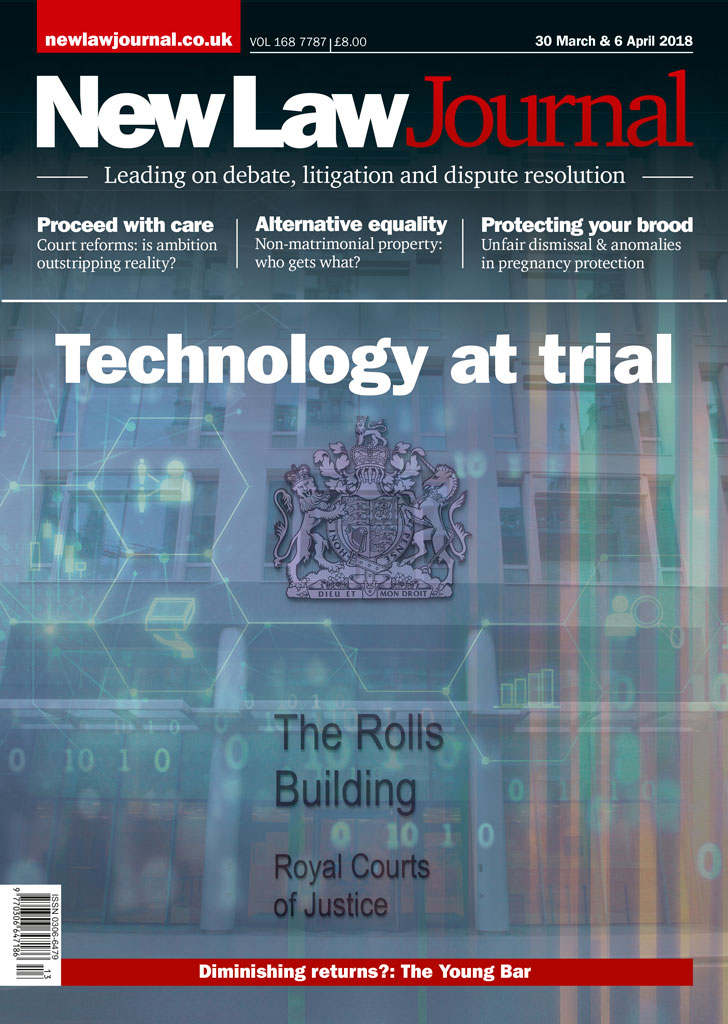
Criminal barristers have voted to take direct action from Sunday, 1 April in response to the revised Advocates’ Graduated Fee Scheme (AGFS), which is due to take effect on the same day.
Without an injection of faith & finance from the government, Richard Hoyle predicts a bleak future for the young Criminal Bar
Mark Rowlands reports on the value a chief executive can add to a modern set of chambers
What safeguards for human rights post-Brexit? Geoffrey Bindman reports
In a new series, Michel Reznik reports on increased support for the Financial Services Tribunal & the momentum for change
The inevitable lot of mankind? Amy Proferes on ‘mistake’ in Schedule 4 of the Land Registration Act 2002
Anomalies persist in the protection of pregnant women against dismissal, as Charles Pigott explains
Laura Hughes & Rebecca Dziobon provide an overview on the scope & nature of non-matrimonial property
MOVERS & SHAKERS

NLJ Career Profile: Ken Fowlie, Stowe Family Law
Ken Fowlie, chairman of Stowe Family Law, reflects on more than 30 years in legal services after ‘falling into law’

Jackson Lees Group—Jannina Barker, Laura Beattie & Catherine McCrindle
Firm promotes senior associate and team leader as wills, trusts and probate team expands

Asserson—Michael Francos-Downs
Manchester real estate finance practice welcomes legal director







